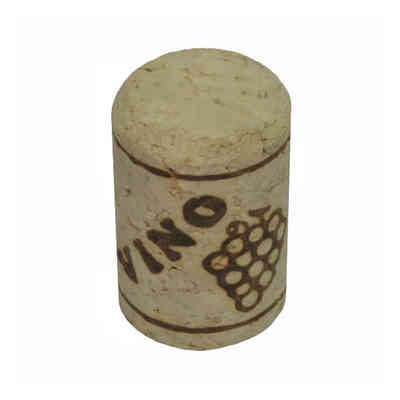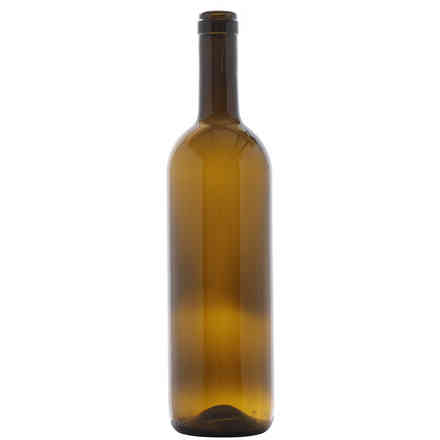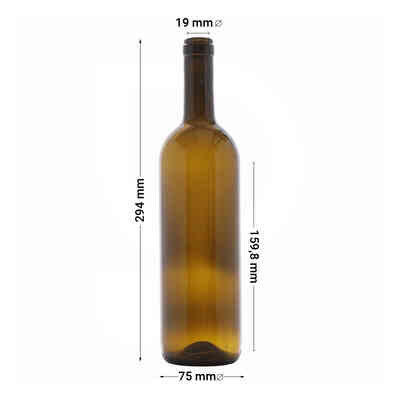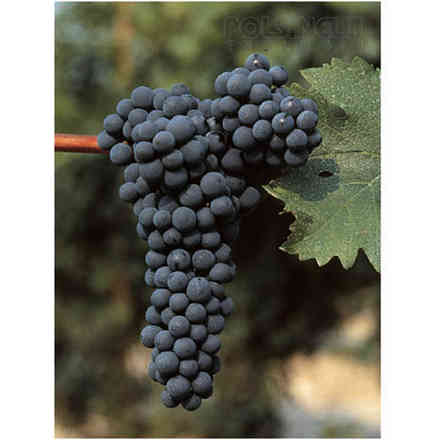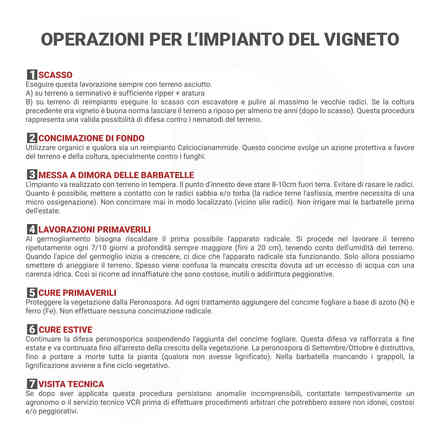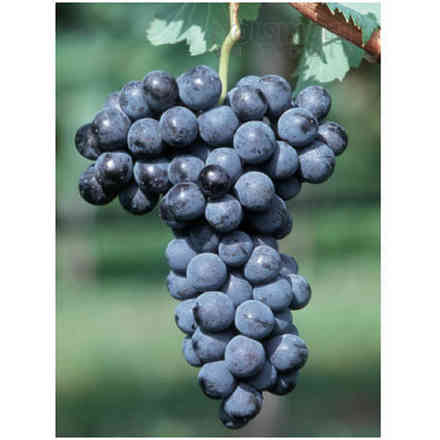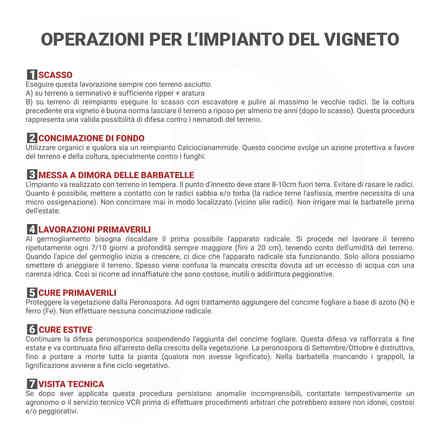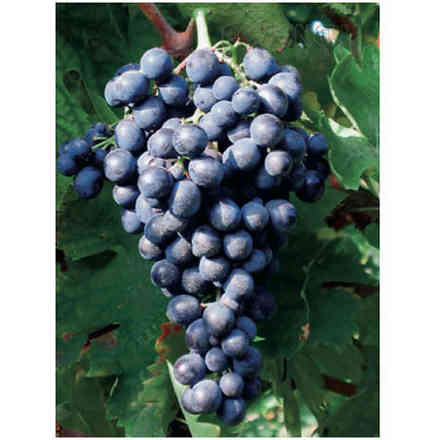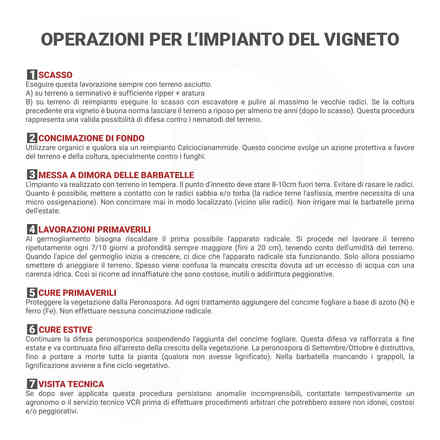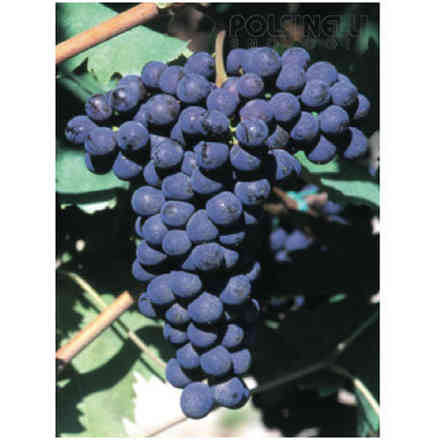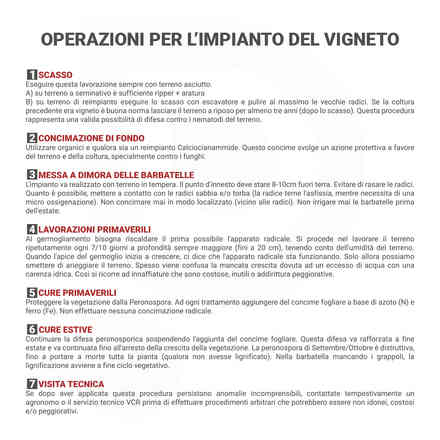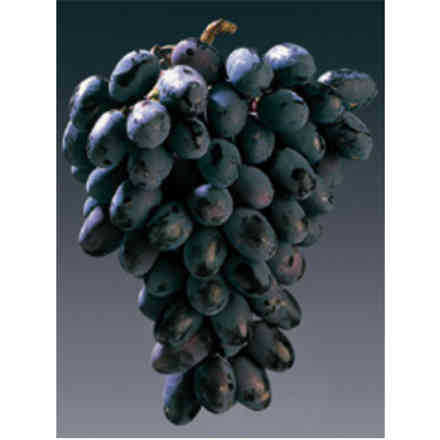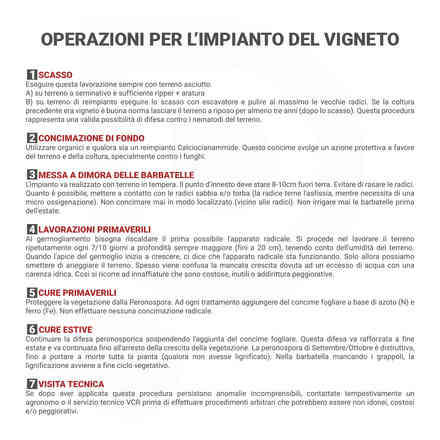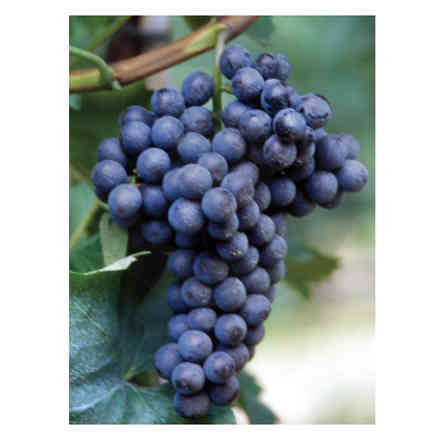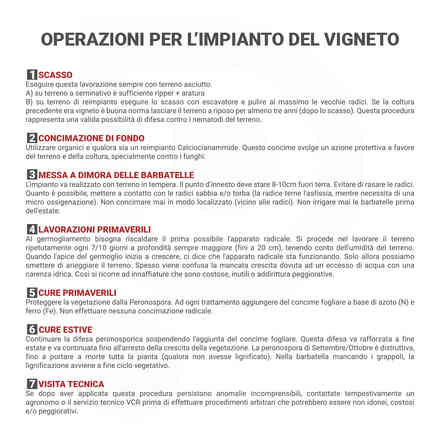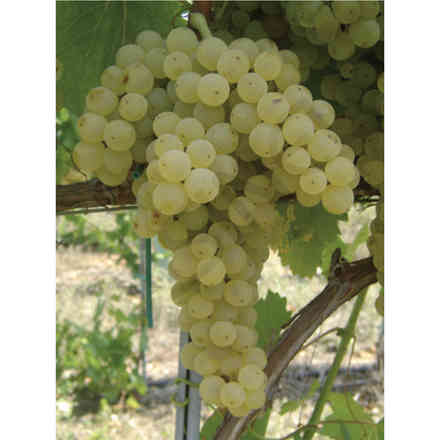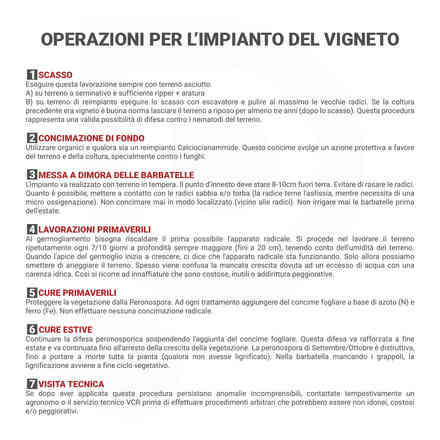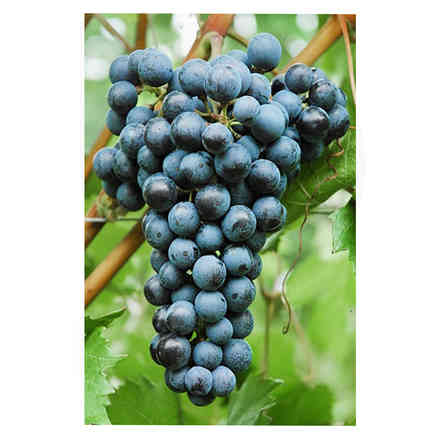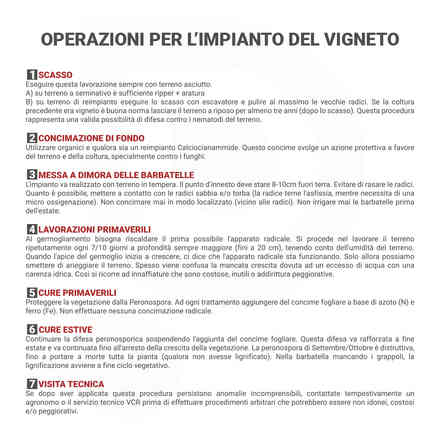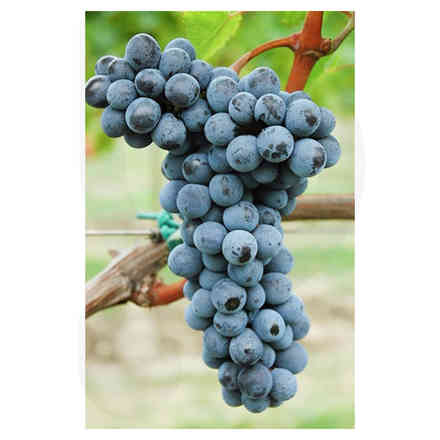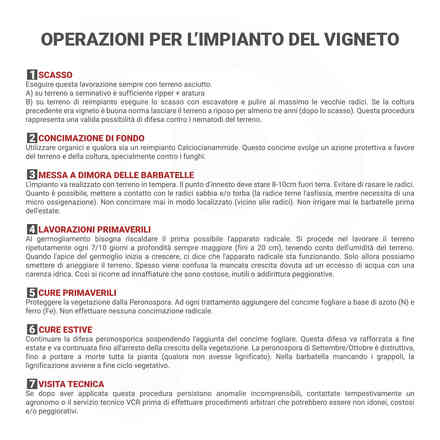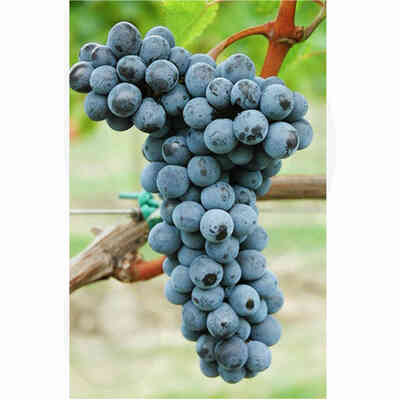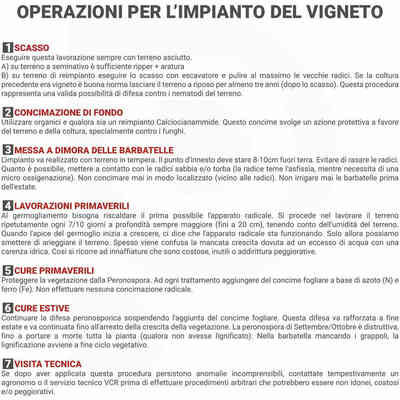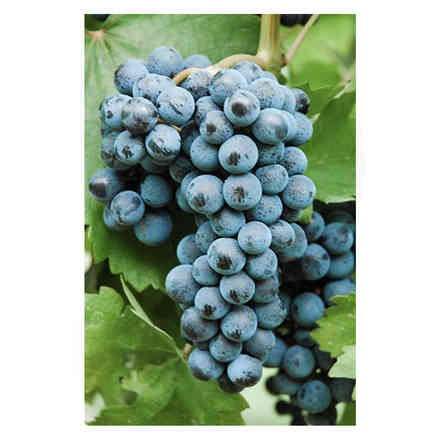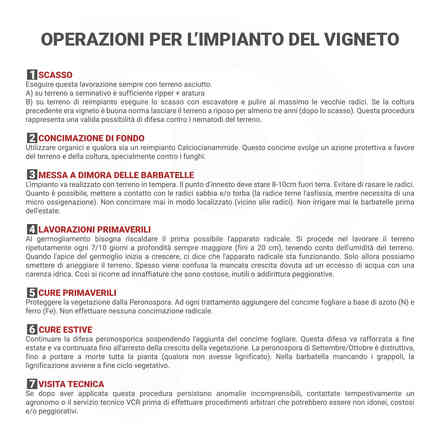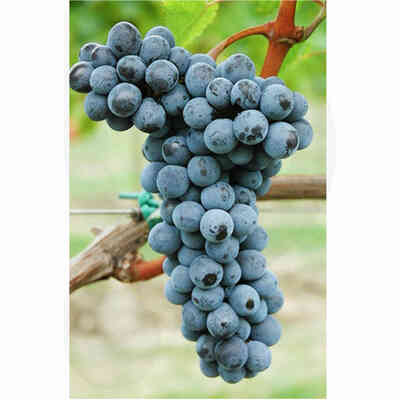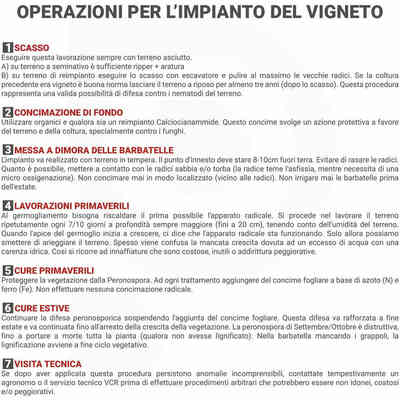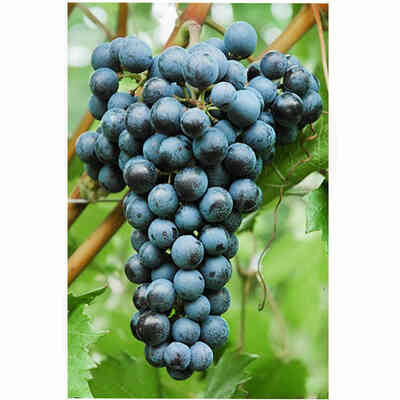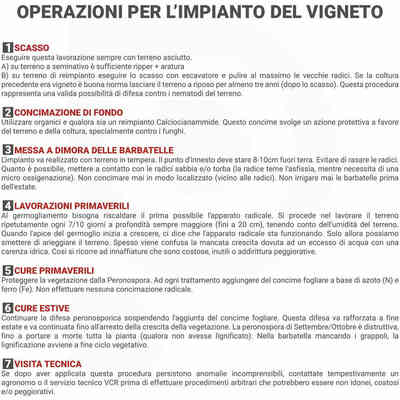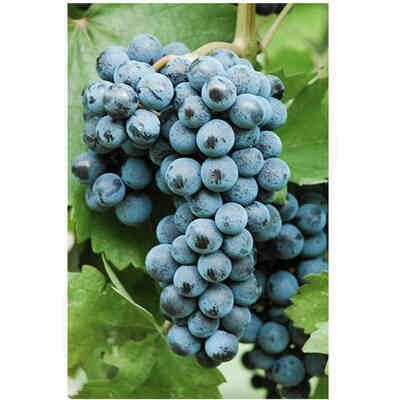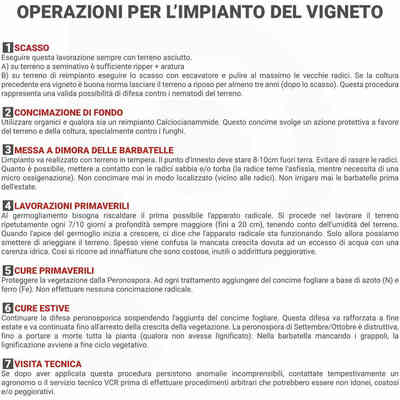
Syrah (10 pieces)
Description
 AUTHORIZED RETAILER
AUTHORIZED RETAILER
SYRAH (10 pieces)
Rootstocks: 1103P - K5BB - S04 - 140RU - 420A (We will send the graft carrier available at the time)
Of Middle Eastern origin, possibly from the city of Shiraz, it is successfully cultivated in many wine-growing areas in France (Rhône and surrounding areas), Spain, Greece, Italy, Portugal and in the warmer areas of the New World (Australia, California, Argentina, South Africa).
- Ampelographics: the grape variety has medium to very productive biotypes that produce wines of varying quality levels. Bud with a medium or globular apex, cottony, greenish white in colour, with a carmine rim. Leaves are five-lobed, medium-large, with U-shaped or lyre-shaped petiolar sinus and slightly overlapping edges. Leaf blade smooth or slightly wavy, underside moderately rich in short hairs. Cluster: medium, elongated, cylindrical, sometimes winged, compact to semi-sparse depending on the clone. Medium-sized, oval-shaped berry with very pruinose skin and sweet and savoury flesh.
- Cultivation skills: vine of good vigour with expanded growth and long, fragile shoots, therefore sensitive to spring winds. Adapts well to warm and luminous environments, dry but not such as to induce water stress.
- Cultivation and pruning: prefers relatively expanded forms of cultivation and long pruning. In warmer climates it may be convenient to prune the spur. In less hot and/or windy climates, it is essential to tie the shoots and prune them green, even vigorously.
- Sprouting time: medium-late.
- Ripening time: medium.
- Production: good and constant, for some clones even high, in which case the quality level is unsatisfactory.
- Sensitivity to disease and adversity: sensitive to botrytis, especially when fully ripe, and to mites. Good resistance to winter cold and late frosts. Sensitive to chlorosis. It is not very compatible for grafting with 140Ru. It is affected by a pathological manifestation called "Syrah decline" and almost all French clones show the symptoms from the 5th or 6th year onwards. It is currently recommended not to use the most sensitive French clones such as 99, 73, 381, 383, 301, 382 and 585. The ISV-R1 clone does not seem to be affected by this syndrome.
- Oenological potential: gives a ruby red wine tending towards violet with a good structure, alcoholic, very aromatic, fine and complex, tannic. Particularly fruity wines can be made, which are also interesting for blending with less aromatic wines of other varieties.
Clones in multiplication: Syrah ISV-R 1; French clones: Inra-Entav 100, 174, 300, 382, 470, 471,
524, 525, 585, 747, 877.
Clones soon to be submitted for approval: Syrah VCR 115, VCR 116, VCR 117, VCR 157,
VCR 158, VCR 246, VCR 261, VCR 440, VCR 441.
CULTIVATED AREA IN ITALY
YEAR 1970 1982 1990 2000 2010
HECTARES 153 52 102 1,038 7,014
CULTIVATED AREA IN ITALY
YEAR 1968 1979 1988 1998 2006
HECTARES 2,658 12,282 27,041 44,823 67,592
RULES TO PLANT A VINEYARD
1. PLOW
You must perform this operation always with dry soil
A) On arable land is generally sufficient to ripper + to plow
B) On planting soil is generally sufficient to plow with an escavator and to clean the old roots.
If the previous crop was a vineyard, it is a good idea to leave the soil fallow for at least three years (after plowing). This procedure represents a valid possibility of defence against soil nematodes.
2. SOIL FERTILIZATION
Use organics and if it is a reimplantation, use Calciumocyanamide.
This fertiliser has a protective effect on the soil and the crop, especially against fungi.
3.PROPAGATING GRAPE VINE CUTTINGS
The planting should be carried out in temperate soil. The grafting point should be 8-10 cm above ground. Avoid shaving the redices. As much as possible, put sand and/or peat in contact with the roots (the root fears asphyxiation, while it needs a micro-oxygenation). Never fertilize in a localized manner (near the roots). Never water the rooted cuttings before summer.
4.SPRING WORKS
When sprouting, the root apparatus must be heated as soon as possible. Work the soil repeatedly every 7/10 days at increasing depth (up to 20 cm), taking into account the moisture of the soil. When the apex of the bud starts to grow, it means that the root system is functioning. Only then can we stop watering the soil. Failure to grow due to access to water is often confused with a lack of water. This is why watering is used which is expensive, useless or even worse.
5.SPRING CURE
Protect vegetation from Peronospora. To each treatment add nitrogen (N) and iron (Fe) foliar fertilizer. Do not make any radical fertilization.
6.SUMMER CURE
Continue with the defense against Peronospora by suspending the addition of the foliar fertilizer. This defense should be reinforced in late summer and should be continued until vegetation growth stops.
The September/October blight is destructive, to the point of bringing death to the whole plant (if it has not lignified). The rooted vine lacks clusters, so lignification occurs at the end of the vegetative cycle.
7.TECHNICAL VISIT
If incomprehensible anomalies persist after this procedure, contact an agronomist or the VCR Technical Service promptly before carrying out arbitrary procedures which may be unsuitable, expensive and/or worsening.





















